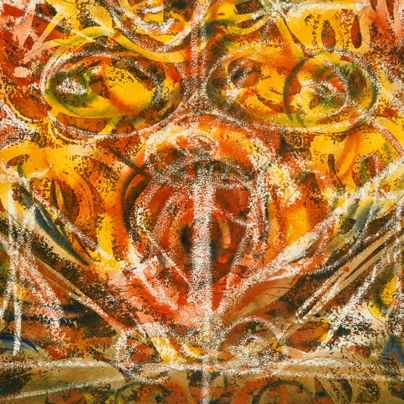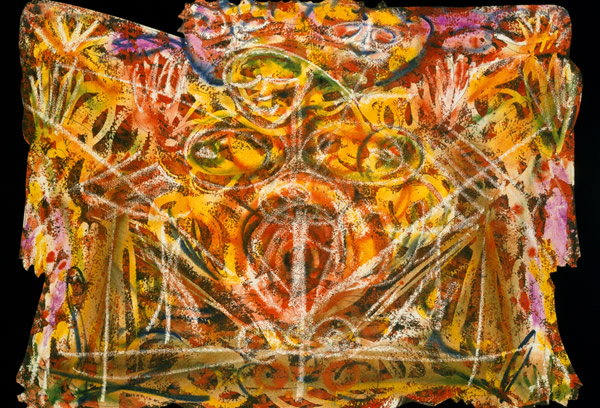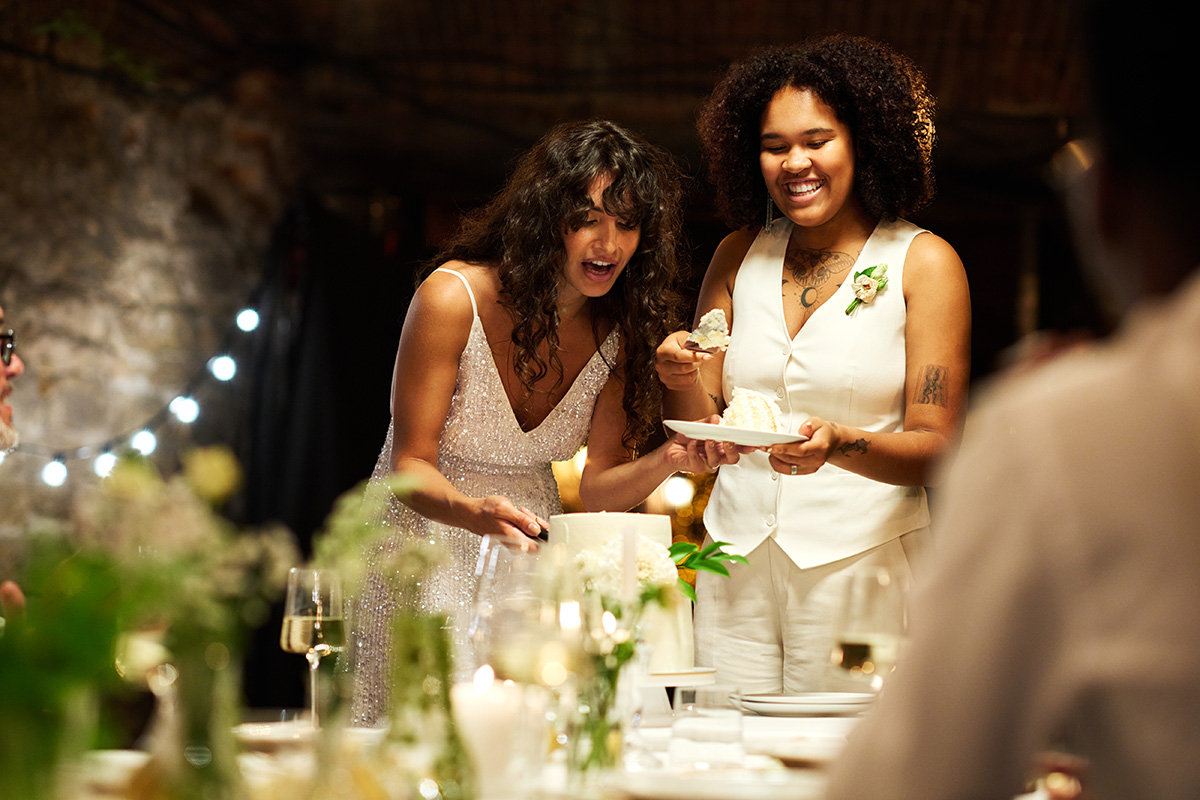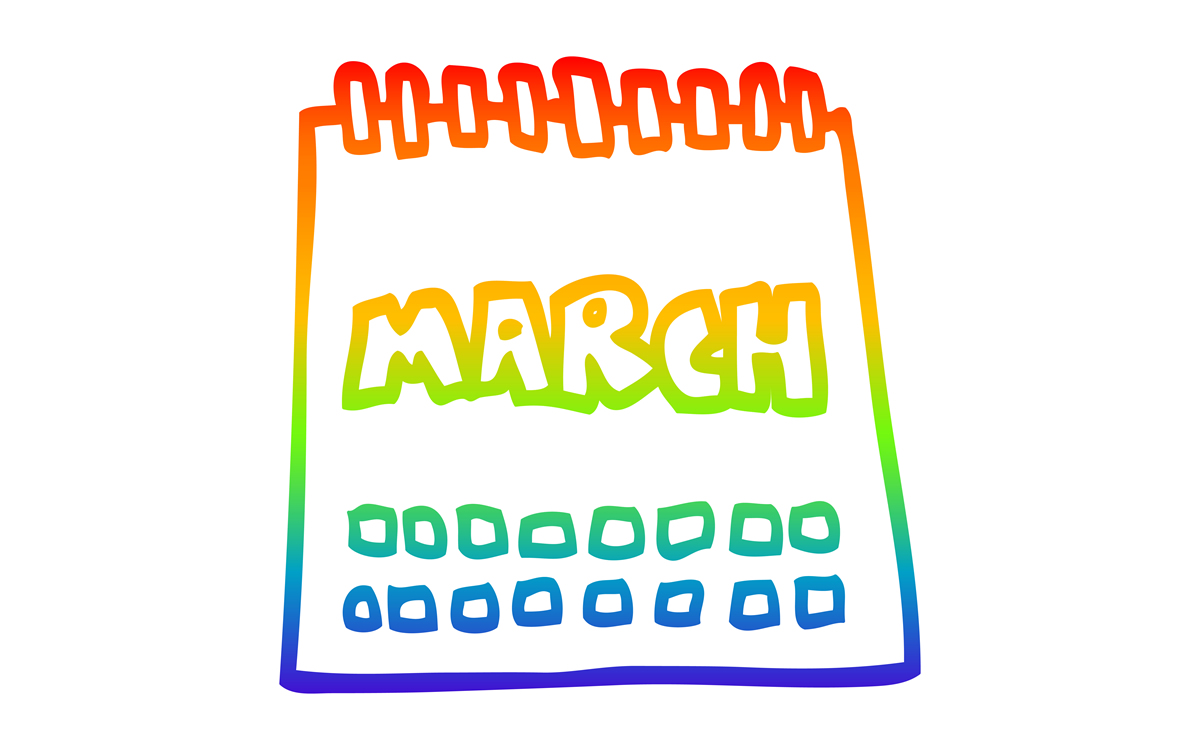Arts & Entertainment
Galleries: The art of the matter
D.C. galleries — and one in New York — have bounty of queer and D.C.-themed shows planned


‘The Helpful Angels,’ a work by late gay artist Alfonso Ossorio on display now at the Phillips Collection. (Image courtesy Phillips)
The Phillips Collection (1600 21st St., N.W.) exhibits “Angels, Demons and Savages,” a showcase of work by Jackson Pollock, Jean Dubuffet and the openly gay Alfonso Ossorio. In their time, Ossorio was friends with both Pollock and Dubuffet, and the showcase, featuring 55 pieces by the three men, connects the three artists in a celebration of key postwar art. The exhibit is already open and runs through March 12. Admission is $12 for adults, $10 for students and seniors, and free for members and children. For more information, visit phillipscollection.org.
Yes, it’s in the Big Apple, but worth checking out if you’re up that way — the Leslie-Lohman Museum of Gay and Lesbian Art (26 Wooster St., New York) presents two simultaneous exhibitions showcasing queer history.
“Rare & Raw” combines illustrations, photographs, video and more exploring themes of queer history. The exhibit pairs works of older artists and younger counterparts to highlight how different generations address the same issues.
“Making History, Making Art: the Work of Jonathan Ned Katz” explores the artistic career of a late-emerging artist, renowned historian of queer history Jonathan Ned Katz. The exhibit shows shifting political landscapes transformed how sexual difference is represented. Both exhibits are currently running through March 31. Admission is free. For more information, visit leslielohman.org.
Hemphill’s Carroll Square Gallery (975 F Street) is featuring “Currents,” an exhibit showcasing four emerging talents in the Mid-Atlantic region. One artist in the group, openly gay Mexican-American René Treviño, attempts to retell history from an underrepresented perspective. His work challenges social norms and explores his need to find his place in the world. The exhibit runs until April 25. Admission is free.
For more information, visit hemphillfinearts.com
Touchstone Gallery (901 New York Ave., N.W.) has two exhibitions running through the month of March.
“Icons” by Steve Alderton features paintings influenced by the styles of Byzantine icons. He focuses on seemingly insignificant traits, such as an eye’s focus or the slight hint of a smile, to subtly hint at a subject’s complex persona.
“It’s Greek to Me” is a modern reinterpretation of Greek mythology. Narcissus, clad only in white briefs, ogles his reflection in a chrome toaster in his kitchen. Europa is a cowgirl at a rodeo. Prometheus sports a farmer tan. The artist, Timothy Johnson, will complete the collection with one final piece he will paint in person on Saturdays and Sundays throughout March.
For more information on these exhibits, visit touchstonegallery.com.
Corcoran Gallery of Art (500 17th St., N.W.) is featuring several exhibitions over the next few months.
On display until April 21 is “Shooting Stars: Publicity Stills from Early Hollywood and Portraits by Andy Warhol.” It features promotional photos of early Hollywood stars, such as Rudolph Valentino and Mary Pickford, alongside Warhol’s photos of figures such as Sen. Ted Kennedy and his Factory “superstars,” like Jackie Curtis.
“Pump Me Up: D.C. Subculture of the 1980s” explores the D.C. underground of the ‘80s, focusing on graffiti, go-go music and the punk and hardcore scenes. Some items showcased include day-glo concert posters, stage clothes, newspaper clippings, video loops, and more. The exhibition runs through April 7.
“How Is the World? Recent Acquisitions of Contemporary Photography” brings together work by several photographers, each with wide-ranging issues of the world addressed in their art. It runs from March 9-May 26.
“David Levinthal: War Games” features photographs of staged tableaux depicting war using toys. Some scenes depicted include images of the American Indian Wars, World War II, and contemporary wars in Iraq and Afghanistan. The exhibition runs from May 11-Sept 1.
Admission is $10 for adults, $8 for seniors and students, and free for children 12 and younger. For more information on these exhibitions, visit corcoran.org.
Zenith Gallery is celebrating its 35th year with several exhibits.
“Is that President Obama at the Washington D.C. Economic Partnership?” is an inauguration art show ending Monday (act fast!). The exhibit features local artists celebrating the uniqueness of Washington, including iconic symbols and architecture of the city. It is held at 1495 S St., N.W.
“The Best of All Worlds … Traditional and Modern Art” showcases paintings and sculptures that embrace the beauty of the D.C. region with depictions of natural and man-made creations. The exhibit is being held at 1111 Pennsylvania Ave., N.W. until April 27.
“Trees-The World’s Greatest Cooperators” highlights the crucial relationship between humans and trees. The pieces celebrate one of the most enduring resources on earth and respect the majesty of trees around the world and in D.C., including the Cherry Blossoms. The exhibit runs from March 17-June 1 at 1429 Iris St., N.W.
For more information, visit zenithgallery.com.
Studio Gallery (2108 R St., N.W.) presents two exhibits: a solo show with Angelika Wamsler’s “soulprint” and a duo show with “Hanna’s Table” by Chris Chernow and “Found Art” by Amy B. Davis. Both exhibitions run until March 23.
For more information, visit studiogallerydc.com.
Out & About
Plan your wedding the LGBTQ way
Washington D.C. LGBTQ+ Wedding Expo scheduled for Sunday

Rainbow Wedding Network will host “Washington D.C. LGBTQ+ Wedding Expo” on Sunday, March 1 at 12:30 p.m.
Guests can meet and mingle with a curated selection of LGBTQ-welcoming wedding professionals from across the region, each ready to help bring your vision to life, and spend a beautiful afternoon exploring everything they need to create a celebration that reflects them.
There will be a relaxed, self-guided look at the Watergate’s spaces and amenities, savor signature cocktails and delicious tasting samples, and connect with other couples who are on the same journey.
Visit Eventbrite to reserve a spot.

Friday, February 27
Center Aging Monthly Luncheon With Yoga and Drag Bingo will be at 12 p.m. at the DC Center for the LGBT Community. Email Mac at [email protected] if you require ASL interpreter assistance, have any dietary restrictions, or questions about this event.
Go Gay DC will host “LGBTQ+ Community Happy Hour Meetup” at 7 p.m. at Freddie’s Beach Bar and Restaurant. This is a chance to relax, make new friends, and enjoy happy hour specials at this classic retro venue. Attendance is free and more details are available on Eventbrite.
Trans Discussion Group will be at 7 p.m. on Zoom. This group is intended to provide an emotionally and physically safe space for trans people and those who may be questioning their gender identity/expression to join together in community and learn from one another. For more details, email [email protected].
Saturday, February 28
Go Gay DC will host “LGBTQ+ Community Brunch” at 11 a.m. at Freddie’s Beach Bar & Restaurant. This fun weekly event brings the DMV area LGBTQ+ community, including allies, together for delicious food and conversation. Attendance is free and more details are available on Eventbrite.
The DC Center for the LGBT Community will host “Sunday Supper on Saturday” at 2 p.m. It’s more than just an event; it’s an opportunity to step away from the busyness of life and invest in something meaningful, and enjoy delicious food, genuine laughter, and conversations that spark connection and inspiration. For more details, visit the Center’s website.
Black Lesbian Support Group will be at 1 p.m. on Zoom. This is a peer-led support group devoted to the joys and challenges of being a Black lesbian. You do not need to be a member of the Beta Kappa Chapter or the Beta Phi Omega Sorority in order to join, but they do ask that you either identify as a lesbian or are questioning that aspect of your identity.Send an email to [email protected] to receive the zoom link.
Sunday, March 1
LGBTQ+ Community Coffee and Conversation will be at 12 p.m. at As You Are. This event is for people looking to make more friends and meaningful connections in the LGBTQ community. Attendance is free and more details are available on Eventbrite.
Monday, March 2
“Center Aging: Monday Coffee Klatch” will be at 10 a.m. on Zoom. This is a social hour for older LGBTQ+ adults. Guests are encouraged to bring a beverage of choice. For more information, contact Adam ([email protected]).
Tuesday, March 3
Universal Pride Meeting will be at 7 p.m. on Zoom. This group seeks to support, educate, empower, and create change for people with disabilities. For more details, email [email protected].
Wednesday, March 4
Job Club will be at 6 p.m. on Zoom upon request. This is a weekly job support program to help job entrants and seekers, including the long-term unemployed, improve self-confidence, motivation, resilience and productivity for effective job searches and networking — allowing participants to move away from being merely “applicants” toward being “candidates.” For more information, email [email protected] or visit www.thedccenter.org/careers.
Center Aging Women’s Social and Discussion Group will be at 6 p.m. on Zoom. This group is a place where older LGBTQ+ women can meet and socialize with one another. There will be discussion, activities, and a chance for guests to share what they want future events to include. For more information, email [email protected].
Thursday, March 5
The DC Center’s Fresh Produce Program will be held all day at the DC Center for the LGBT Community. People will be informed on Wednesday at 5 p.m. if they are picked to receive a produce box. No proof of residency or income is required. For more information, email [email protected] or call 202-682-2245.
Virtual Yoga Class will be at 7 p.m. on Zoom. This free weekly class is a combination of yoga, breathwork and meditation that allows LGBTQ+ community members to continue their healing journey with somatic and mindfulness practices. For more details, visit the DC Center’s website.
a&e features
Transmission DC breathes new life into a storied sound space
A fresh home for boundary-pushing culture on H Street

Late last year, phoenix-style, a fresh home for boundary-pushing culture arose on the H Street corridor. Transmission DC – a queer, trans, and POC-owned, operated, and centered community-focused venue – powered on in the former home to the Rock & Roll Hotel (famously, not a hotel, but very much rock & roll). Transmission (1353 H St., N.E.) arrives secure in its mandate – or even birthright – to provide a place to celebrate creativity and music through a lens of inclusivity and respect.
Transmission’s team brings experience, but also representation. Owners/partners Kabir Khanna (who is also programming director), Katii B, Ellie McDyre, and Kelli Kerrigan together previously managed 618 productions, a venue in Chinatown, crafting “some of D.C.’s freakiest parties, raves, and mosh pits” they note.
They packed up operations last fall to a space curated specifically for D.C.’s underground music and culture scene, building their efforts in Chinatown to bring in more fans in queer and POC circles.
Transmission, Khanna points out, is built on DIY values. In the music scene, DIY means that promoters and organizers – often disconnected from the mainstream and part of marginalized communities – build shows and programs collaboratively, but independently from institutions, supporting each other as smaller, independent venues close. Here, Transmission aims to ensure that those putting together these underground inclusive shows have a more permanent and stable home, can have access to resources, and can provide more sustainable income to artists. “We’re trying to get more people to support and enjoy the music, and also give artists and organizers within the DIY community more structure and a larger cut,” says Khanna.
Khanna also notes that Transmission operates “under the principles of safety, inclusivity, and respect.” McDyre added that even at venues that claim inclusivity, that statement might not take place in practice. We’re “not just pitting up a rainbow flag,” says McDyre, but as some of the owners are trans and POC, audiences can see themselves reflected at the top.
Much like the DIY nature of the music community, the Transmission owners brought a DIY ethos to turning around their space.
In March 2020 – the height of COVID lockdowns – Rock & Roll Hotel suddenly shuttered, though not due to the pandemic; instead, the venue claimed that decreasing sales and increasing competition led to the closure. For 14 years, it was the central spot for cheap beer and lesser-known and celebrated acts. The space stood vacant for more than five years, until Transmission turned the power back on.
“When we got into the space, it was effectively abandoned for years,” says Khanna. “There was a ton of mold, and paint primer covering all surfaces. It was nearly falling apart.” Khanna noted that many music venues like this one, regardless of how well it was maintained, “get the shit kicked out of it,” given the nature of shows. The team called in mold removal contractors, ripped up most of the floorboards, and started fresh.
Transmission’s first floor is styled as a stripped-down black box: the better to take in the music. “It’s minimal on purpose to act as a canvas for set design and music,” without a specific aesthetic, says Khanna. Moving upstairs, the second floor has been opened up, removing some walls, and now has a larger dance area than the first floor. Beyond the first two performance levels, and a holdover from Rock & Roll Hotel, is the rooftop. Though without a stage, the rooftop space is filled with murals splashed across the walls, with a full bar. Transmission’s current capacity is 496, but the team is looking to grow that number. Transmission will also leverage the full kitchen that Rock & Roll Hotel operated, bringing in Third Hand Kitchen to offer a variety of food, including vegan and vegetarian options.
Khanna pointed out an upcoming show reflective of Transmission’s inclusive ethos: Black Techo Matters on Feb. 27. The event is set to be “a dynamic, collaborative night of underground electronic music celebrating Black History Month.” Khanna says that techno came from Black music origins, and this event will celebrate this genesis with a host of artists, including DJ Stingray 313, Carlos Souffront, and Femanyst.
-

 Mexico5 days ago
Mexico5 days agoUS Embassy in Mexico issues shelter in place order for Puerto Vallarta
-

 Netherlands4 days ago
Netherlands4 days agoRob Jetten becomes first gay Dutch prime minister
-

 Sports4 days ago
Sports4 days agoMore than a dozen LGBTQ athletes medal at Olympics
-

 Books3 days ago
Books3 days agoNew book profiles LGBTQ Ukrainians, documents war experiences



















